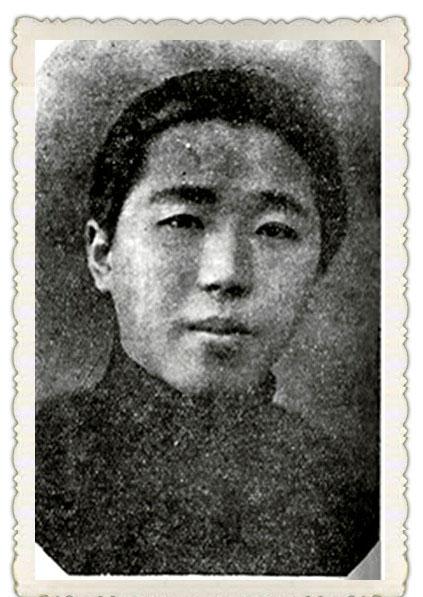Wei Daoming (1899-1978), zi Bocong, was a native of Dehua (now Jiujiang), Jiangxi. In his early years, he received a doctorate in law, returned to China to handle litigation matters, and then took charge of the Ministry of Justice of the Indian Government, and became the mayor of Nanjing in 1930. After stepping down, he ran newspapers and periodicals for several years. The flames of the War of Resistance suddenly ignited, and this jun crossed the ocean to France and went to the United States to serve as an ambassador. After all, dr. Full of learning changed his career as quickly as turning over a book. In 1947, he took charge of the administration of Taiwan Province, which showed even more ability to maintain stability: he went to martial law and abolished the countryside, and filled the aborigines as his staff, and the violent situation on Taiwan Island was eased by the "228" period. Only in the past few years, he hung up his seal and resigned from the government. In his later years, he lived in Brazil in his eighties and died.

[Guest Mayor Ma Chaojun] Ma Chaojun (1885-1977), character Xingqiao, a native of Taishan, Guangdong. In the early years, he joined the League to fight for his life, and then accompanied Mr. Sun to protect the law and repeatedly instigated the strikes of workers in Guangzhou and Hong Kong. He has served as the mayor of Nanjing for 4 times, and the four seasons are less than 100 days short. He was the first mayor of Nanjing in November 1931 and was succeeded by Shi Ying in January 1932. In March 1935, Shi Ying angrily abandoned his post and continued to do so, and in the same year Ma Shi stepped down as a member of the State Council and stepped down as mayor. In 1937, he was again mayor until November when he was transferred to Xiaoshan Ling as his substitute. In 1945, he was mayor until the following year.
Shi Ying (1878-1943), also known as Shi Ying , was a native of Yangxin ( now Tongshan County ) in Hubei Province. He was a former Qing Dynasty man, and went to the West to learn navigation, learn to build roads and then learn mining and metallurgy, return to China as a professor, build guns and cannons, build railways and then manage water conservancy. In March 1932, he was appointed mayor of Nanjing, and there was a noisy honor guard in front. Shi Ying's conceited brown shirt and cloth shoes avoided him, and deya was called "Mayor of Cloth". During his term of office, he sympathized with the people's livelihood and built a lot of ugly houses to help the poor, and taxed the powerful and did not let go of any point, offending the high-ranking officials. Every time a magnate mistakenly violates the country, he will resign in anger and resignation, and all sectors of society will repeatedly ask for comfort.
Xiaoshan Ling (1892-1937), a native of Yiyang, Hunan. In November 1937, when the Wukou Iron Armor approached Gyeonggi, the gendarmerie commander Gu Zhenglun went to Chongqing to raise his own problems and was taken over by the deputy commander Xiao Shanling, and the mayor of Nanjing, Ma Chaojun, also took over by Xiao Shanling. For several days, Xiao Shi, who was on the front line, the front line, and the line of fire, wore the dazzling laurels of the commander of the gendarmerie and the commander of the capital air defense, the director of the capital police department, and the mayor of Nanjing. On December 12, the city of Nanjing was destroyed, and Xiao Shi led the remnants of his troops to Xiaguan. Seeing the citizens of the river scrambling to cross the river, the Japanese cavalry attacked and organized a counterattack. Outnumbered, Xiao Shan Ling killed himself in the line of duty.
Shen Yi (1901-1980), also known as Jingqing, the character Junyi, a native of Jiaxing, Zhejiang. He received a doctorate degree in engineering from Germany. After returning to China, he successively served as the director of the Shanghai Municipal Public Works Bureau, the Yellow River Water Conservancy Committee, the vice minister of the Ministry of Communications, and in 1946, he became the mayor of Nanjing. Shen's political achievements are rarely recorded, and it is often seen that his grandfather and his father and 4 sisters and brothers each led the momentary storm, especially the eldest sister Shen Yiyun and the eldest brother-in-law Huang Gao are the most famous. Shen Yiyun led the women's death squad to the Xinhai year to restore Nanjing, and was called a hero; Huang Hao had exchanged scores with Chen Qimei and Chiang Kai-shek, was good at planning state affairs, and was the founder of the Republic of China who "folded the bottle and made meritorious contributions to the battlefield".
Teng Jie (1905-2004), zi Junfu, formerly known as Lan Sheng, a native of Binhai, Jiangsu. Graduated from the Infantry Section of the Fourth Phase of the Whampoa Military Academy, he served as the secretary of the China Revival Society and was ranked among the thirteenth Taibao of Chiang Kai-shek. In 1948, Chiang's regime was crumbling and falling apart, and the mayor of the capital was entrusted with the post of Teng Jie, the "most politically important" concubine. However, there is no way to spend it, and the "Taibao" is powerless to stop the "capital of the Republic of China" as history. Teng's experience in Taiwan is quite interesting, and he has served as a member of the Guangfu Mainland Design Committee, the president of the Democratic Unification Association, and the chairman of the Peace Committee. This gentleman also lived for a hundred years.